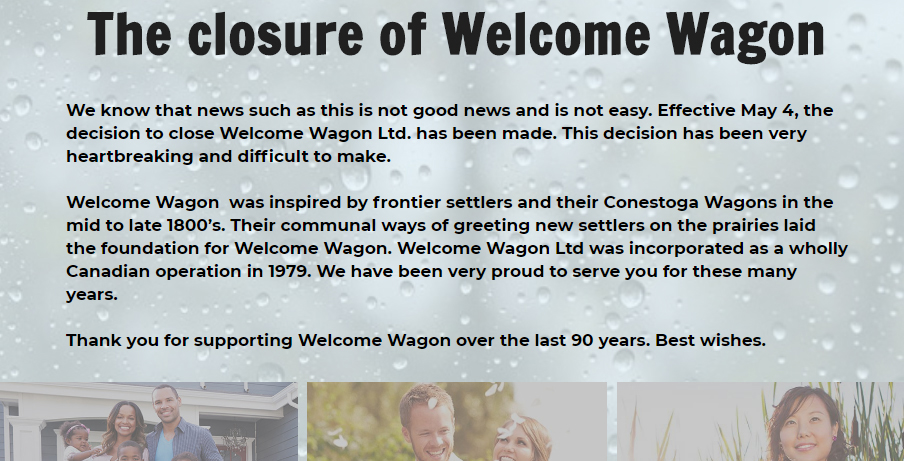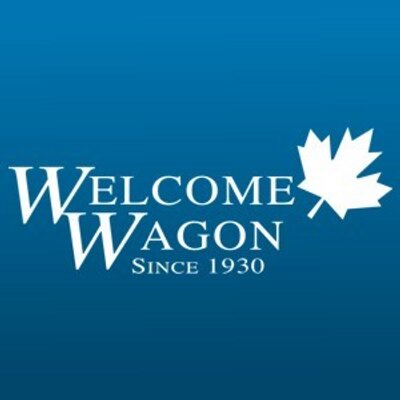Monday May 11, 2020 ~ NATIONAL
by Mary Brooke, editor ~ West Shore Voice News
It’s a sign of the times that an iconic institution of the post-1980s boom economy has fallen under the weight of transformational change that is surging forward into society and the economy in response to the COVID-19 pandemic.
Using rudimentary business methods that relied on personal interaction in communities and very little modern technology (mostly telephone, home visits, and distribution of printed flyers from advertisers), Welcome Wagon that since 1979 has visited people in their homes to promote local businesses and services has closed its doors. The announcement came as week ago, on Monday May 4, amidst the swirl of COVID-19 news about case counts.

Welcome Wagon by default was an overlay service to local municipalities who could also engage with the commercial service to deliver basic information about local services that were unique to the area.
The business started in the Great Depression in 1930 based on the pioneering ways of welcoming people to a brand new way of living. With home visits (and for the bridal and baby side of things also trade shows), the bridge to achieving a somewhat immediate ‘fit’ into the community cultural stability was appreciated by families and served as a powerful contributor to overall communities. Providing that valued service in a highly personal way probably helped Welcome Wagon stay afloat in the last 10 to 15 years as digital technologies and social media began to overtake the welcoming function in a speedier and less home-invasive way.
In Canada, Welcome Wagon Ltd was incorporated as a wholly Canadian operation in 1979. Like much of what we remember of pre-COVID normal mainstream Canadian ways, the company prospered for a 40-year run based on the enterprise-building drive of core owners who found fortune by embracing the socioeconomically ambitious latter part of the 20th century, though barely tinkered with the original concept as digital information technologies changed the face of business in the first 20 years of this century.
Similarly, many other entrepreneurs or professionals who started in the early 1980s were winding down in the last few years (even pre-COVID). One stark example of that is the diminishing number of doctors in private practice (and an overall shortage of physicians for the growing population, particularly in BC). The business model based on profit was not in-keeping with the changing times of greater community good.
Today a similar service would be started with the use of social media perhaps anchored in a community non-profit association. Nothing replaces one-on-one human interaction as a way to know your neighbours, but now with a pandemic that is likely to last for years — and even with a vaccine will still see people social-distancing and limiting their crowd exposure out of common sense — remote community-building is the way of the future.
Welcome Wagon mostly employed older women on contract — people who had lived in their communities and knew they way around. It was good retirement income for socially-adept seniors… someone who was known and trusted, and could provide genuine insights for new families in new neighbourhoods. This personal touch is no doubt now lost.
The bigger picture here is that the forces of COVID-19 are laying waste to any business or enterprise that cannot adapt to remote delivery of services or to new societal norms.
==== LOCAL NOTE:
In Sooke for a long time (19 years), the Welcome Wagon rep was Judy MacNeill, also assisted by Liz Kreeft. Very recently the local Welcome Wagon franchise was going to be taken forward by Nancy Reinders but Welcome Wagon did not manage to survive the self-isolation component of the pandemic.



